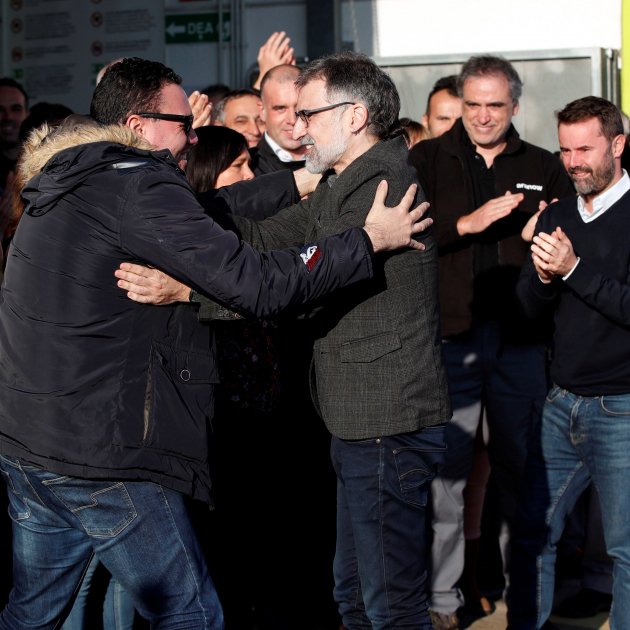They tried it unsuccessfully over a 72 hour leave permit but they are unbowed. Public prosecutors in Barcelona are opposing Jordi Cuixart's leave under article 100.2 of the prison regulations, which is already permitting him to exit the prison during the week to work at his job and in voluntary duties, despite being classified under a standard second-level prison regime.
In a submission to the prison supervisory court on the Catalan pro-independence leader, the prosecutors state that in addition to the goal of re-education and social reintegration, the sentence serves purposes of "retribution" as well as "general and special prevention, that is, to intimidate society as a whole, and also the offender himself, to dissuade him from committing new offences."
They argue that in the case of serious crimes, such as sedition, the penalty must be seen by society and by the convict "as an effective sanction in order to maintain confidence in the rule of law and the proper functioning of public administration, an affirmation of the principle that justice is equal for all."
Jordi Cuixart has already been able to leave Lledoners prison under this article of the prison regulations, doing so for the first time this Thursday, since the granting of the leave is immediate once the prison's treatment board approves it, but subsequently the board must advise the prison supervisory court, which may confirm or revoke it after a report from the prosecutors.
As well as stressing the seriousness of Cuixart's offence in their document, the public prosecutors warn that article 100.2 is not a special classification nor different from the three basic regimes contemplated in the regulations - the first-level high security regime, the second-level standard and third-level open classifications, followed by parole - "nor an intermediate step to access to the third level and, much less, a means of obtaining a covert third-level category without meeting the legal requirements."
The prosecutors are highly critical of the Lledoners treatment board's report and assert that its interpretation of the regulations is illegal. They emphasize the importance that Cuixart must receive a treatment programme "in accordance with the offence", which "is intended to teach respect for the law." For the Òmnium Cultural president to go out to work and volunteer will not have "any treatment effect", because in his case it is not a matter of establishing a work ethic or a sense of social empathy. "Not only does the inmate have no deficit in regard to work habits or social empathy, but moreover, we can say that he is an entrepreneur and hard worker with a strong social conscience," declare the prosecutors.
Exceptional permissions
Thus the submission concludes that the prisoner is "serving a sentence for a serious crime, for which he has also received a serious sentence, nine years in prison, and despite the fact that the reports backing the application consider him to be a first-class inmate in criminal and prison terms, who has served a quarter of his sentence and shows good behaviour, which are certainly encouraging factors, it must be borne in mind that the closer inmates are to the start of their sentences, and the farther they are from their definitive release, the more exceptional the granting of permissions under article 100.2 must be".
